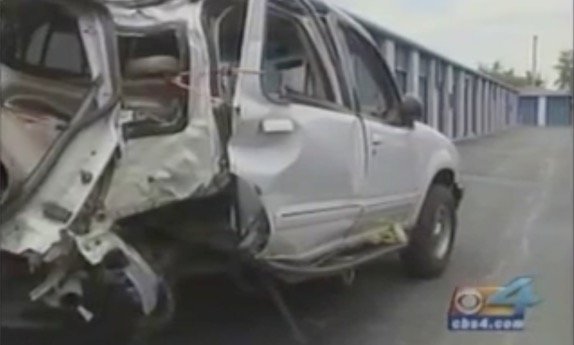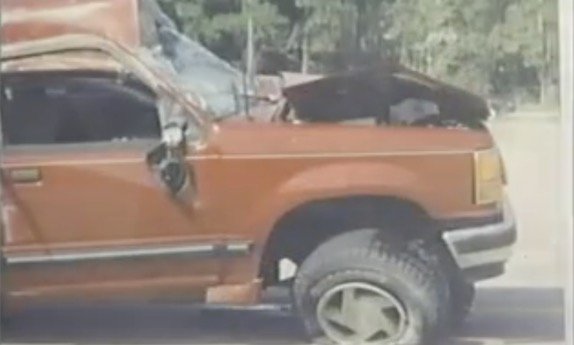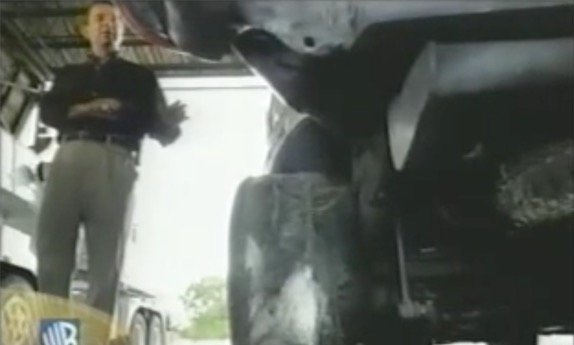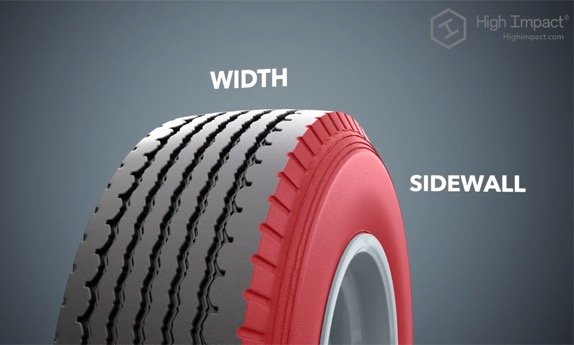Defective Tire Recalls
Tires offer a footprint that is intended to equal the weight of your car, truck, utility vehicle or semi with the bearing power of the surface that it travels over by providing a bearing pressure that won’t distort the surface.
When tires are poorly manufactured, or pass through quality inspection without regard to potential defects, innocent people may lose their lives. And when defective products take lives or cause injury, civil liability falls on the manufacturer or distributor who allowed those tires to pass, and get installed on a vehicle.
- BF Goodrich
- Bridgestone
- Continental
- Cooper
- Dunlop
- Firestone
- Goodyear
- Michelin
- Pep Boys
- Pirelli
- Sumitomo
- Yokohama
The defective tire attorneys at Halpern Santos & Pinkert, P.A provide superior representation to victims of auto accidents stemming from poorly constructed tires. Whether it’s tread separation, poor installation or manufacturers failing to recall defective tires, a comprehensive case review and thorough litigation process is what clients can expect from us.
What You Need to Know about Tire Recalls
It’s hard to know just how many tire brands get recalled, how often recalls occur, and how many total tires are affected. The U.S. Tire Manufacturers Association reported 50 tire recalls issued by its members in 2017, involving three manufacturers, eleven brands and 16 different models. To-date in 2018, recalls have been issued by Continental, Kumho, Sumitomo and other tire manufacturers. Tire makers should conduct their own inspections and quality control to keep dangerous or defective tires from getting to market, but quite often manufacturers don’t know about a problem with their tires until customers complain about an issue. Sadly, it sometimes takes multiple tragic accidents to occur before tire manufacturers take an issue seriously, investigate and issue a voluntary recall. And even if your tires are subject to a recall, there is no guarantee that you will be notified about it in a timely manner.
When crashes occur because of tire defects, the tire litigation attorneys at Halpern Santos Pinkert know the proper steps to take to investigate the accident, prove that the tire was defective, and establish the liability of the manufacturer or tire service provider in selling or installing that defective tire. Remember that tires can be defectively dangerous regardless of whether a recall has been issued or not.
Facts about defective Tire Recalls
Once a product recall is issued, it can still take weeks before information starts to get in the hands of consumers. In the case of tire recalls, the process can take even longer, and some tire owners may not be notified at all. When the vehicle itself is recalled, almost all owners are notified because the auto maker works with the state to locate the address of the registered vehicle owner. This is not the case with tires, however, and tire makers may have to rely on warranty registration cards that may or may not have been sent in by the purchaser.
Most recalls are considered voluntary recalls. These include recalls that are initiated by the manufacturer itself, as well as recalls that are instituted by the manufacturer only after being contacted and pressured by a government agency such as the National Highway Traffic Safety Administration (NHTSA). If the government demands a recall but the manufacturer refuses, the agency can sue the manufacturer and force an involuntary recall in certain circumstances.
Tires can be recalled for any number of defects in their design or manufacture. Recent tire recalls include the following defects and dangers:
- Sudden loss of air
- Visible cords seen through the inner liner
- Fail to meet strength test requirements (FMVSS 119)
- Tire belt separation
- Incompletely cured vulcanizing compound
- Missing date code TIN information on sidewall (FMVSS 139)
- Missing load rate information on sidewall
- Loss of vehicle control from tire belt separation
- Tire sidewall separation
Check Your Tires for Recalls or Report a Problem
Are you shopping for tires or concerned about the tires currently on your vehicle? Search for your tire size and brand name here to see if your tire has any recalls, investigations or complaints. You can also file a complaint about your tires here as well, so that others can become aware of your experience.
Manufacturer’s Responsibility
The NHTSA estimates 11,000 tire-related accidents happen each year, and while not all are attributed to tire manufacturing, a growing number are. Much like other consumer products, defective tire recalls should take place when any issue in design could affect tires already installed on passenger and commercial vehicles. Sometimes, that simply doesn’t happen.
Constructed with rubber, fabric, steel belting and chemical mixtures, truck and car tires are engineered to sustain certain vehicle weights and offer varying degrees of traction equal to their intended use. Once the tire leaves manufacturer, retailers sell the tire based off tread quality and miles of road use one may expect to achieve. Tires, once purchased, are pneumatically filled, mounted and balanced.
Because a specific mixture is used to form a green tire which is then cured, an improper mixture during this curing process could lead to defective tires. Manufacturers must recall all tires affected by DOT date code (last 3-4 numbers in series of numbers normally circled) and brand.
When Tire Makers Are Civilly Liable
Under-inflation accounts for half of today’s tire-related accidents, and while manufacturers and installers will be quick to push blame onto consumer, civil liability can happen if:
- Tread separation exists despite consumer’s proper inflation and use of tire;
- Manufacturer knew of defect but failed to recall in timely manner;
- Retailer sold tires set aside due to known defect;
- Installer allows inflated tires to leave with bubbles or blisters in sidewalls;
- Any of the above causes serious injury, or death.
Halpern Santos & Pinkert, P.A. holds companies accountable for abusive manufacturing processes, retailers responsible for being complicit to their activities, and installers who knowingly and willing install tires with visual defects. For 60 years, we’ve fought diligently for consumers, and we’re just getting started.
What Kinds Of Defects Prompt Tire Recalls?
Today’s tires must bear an enormous amount of vehicle weight in very stressful driving conditions. As a result, even tiny flaws like sidewall blisters can cause serious wrecks. These small air bubbles often burst during vehicle operation, causing a sudden drop in tire pressure. Other types of tire defects include rim failure, tread separation, and bead failure. All these flaws, and more can cause serious crashes.
At Halpern, Santos & Pinkert, our tire defect attorneys work hard to obtain fair compensation in defective product cases. We understand the unique nature of these claims, as well as the unique nature of your pain and suffering. We work diligently to obtain necessary evidence in these cases. To expedite the process, we often partner with private investigators, because time is so critical. All the while, we keep you informed all the way. Our clients are partners and not just customers.
Tire Defect Categories
Product safety has come a long way since the early 1900s. Back then, it was legal to sell anything to anybody for any reason. One prominent pharmaceutical company even marketed heroin as a children’s cough syrup.
Nevertheless, the system is not perfect. Before government watchdogs issue tire recalls, these bureaucrats must receive hundreds of reports of the same problem. So, by the time consumer product safety watchdogs take action, thousands of people may have already been seriously injured.
When companies place profits before people and sell dangerous tires and other products, the underlying issues is usually a:
- Manufacturing Defect: To maximize profits, some companies use cheap materials or cheap labor. So, the designs that were perfectly safe do not turn out that way once cars actually hit the roads.
- Design Defect: In many ways, the 1970s Ford Pinto remains the quintessential example of a design defect. Even though Ford executives knew the Pinto’s gas tank design was dangerous and that only slight adjustments would resolve the problem, Ford kept selling Pintos anyway. As many as 180 people died.
Defective tire warning signs are very subtle, so the collisions that these tires cause are usually loss of control crashes. These types of wrecks tend to cause the most serious injuries, up to and including wrongful death.
Your Claim for Relief
Because of the serious nature of defective trie wrecks, substantial compensation may be available. This compensation includes money for economic damages, such as medical bills, as well as money for noneconomic damages, such as pain and suffering. Moreover, Dade County jurors often award substantial punitive damages in mass tort cases.
In a defective product case, victims need only establish cause. Manufacturers must produce safe products as a matter of law. That’s especially true of tires and other products designed for extensive use under strenuous circumstances.
Other defective tire cases involve negligence. These claims are usually very easy for the jury to understand. Instead of complex evidence about industry standards and air pressure tolerance, the jury hears a simple story about a careless company.
How Can I Ensure That I Will Be Notified Of A Tire Recall?
Tire blowouts cause about 78,000 crashes a year. Driver inattention, like overloading the vehicle or under inflating the tires, causes a few of these crashes. But defective tires are responsible, at least in part, for most of them. Given the diverse nature of possible tire defects, it’s very important that consumer know how to protect themselves and their families.
At Halpern, Santos & Pinkert, our tire defect attorneys aggressively represent accident victims. Serious auto collisions usually result in high medical bills and other economic losses. On top of that, many victims must endure almost unimaginable emotional distress, largely because their injuries sap the enjoyment from life. Because of these substantial losses, substantial compensation is available as well.
Staying Informed About Tire Recalls
Generally, it is quite easy to learn about tire recalls which may affect your family. There is not much of a secondary market for used tires. So, the current owner is almost always the original owner. This issue is much more complex when it comes to vehicle defects, like defective airbags. Older cars may be on their third or fourth owners. So, these people may have no idea that they are driving a vehicle that’s under a safety recall.
Always register new tires with the manufacturer. Yes, the manufacturer will probably use that information for marketing and other purposes. But, in the event of a recall, the manufacturer only has a duty to notify record owners.
Alternatively, record the tire identification number (TIN) and tire size. This information is usually located on the tire’s sidewall. Then follow the National Highway Traffic Safety Administration on social media. When NHTSA recalls tires, it broadcasts the TIN and size.
In some cases, setting up a Google Alert is a good idea. Most people already have Google accounts, so the setup is easy. Use the search term “+ recall.”
Defective Tire Issues
One inherent problem with recall notices is that they often come too late. NHTSA must collect a large volume of data before it does something radical, like issue a recall. Furthermore, NHTSA employees usually hesitate to second-guess other government bureaucrats who previously said the tires were safe.
So, defective tire collisions are almost inevitable. If such a catastrophe happens to your family, there are basically three types of product liability claims:
- Manufacturing Defect: Minute errors in the manufacturing process often cause serious defects. For example, if a screw is misaligned just a few degrees, it could cause the whole tire to fail. Most manufacturers use highly-automated production processes, so these errors may go undetected for quite some time.
- Breach of Warranty: The Uniform Commercial Code sets out a number of implied warranties. Some of the major ones include fitness for the products ordinary purpose, adequate packaging, and uniform consistency. If the product is designed for a specific use, such as off-road use, additional warranties may apply.
- Design Defect: Some tires are defective while they are still on the drawing board. That could be a money-saving design that also compromises product safety.
Defective product cases are usually strict liability cases. To obtain compensation, victims need not prove carelessness or fault. They only need to prove causation.
Have You Been Injured as a Result of Defective Tires?
Vehicle manufacturers can be held liable, too. Should your vehicle have an electronic pressure monitoring system that fails or works improperly, and you’ve kept your tires properly inflated, civil liability can fall on automaker. From tread separation, to sidewall blowouts and early exposure of steel belting, there’s no defect we’re unable to find the cause of. If you or your loved one has been injured or killed due to defective tire recalls, contact us toll-free at 877-529-6211.
Get Legal Help after a Tire Related Car Accident
If you have been injured in a tire-related car accident, find out whether the tire manufacturer or another party is liable to you for your injuries. Contact the tire litigation lawyers Halpern Santos Pinkert at 877-529-6211 for a free, confidential consultation regarding your potential claims.












